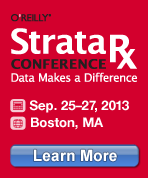Noting the power of social media in situations ranging from the marketing of sneakers to the overthrow of autocratic regimes, many health care thinkers have suggested a greater use of social media by doctors and people seeking information on health care. One of the companies moving fastest in this area is HealthTap, which I reviewed shortly before their launch and most recently after an intriguing initiative in rating doctors.
Studies and casual observations show that all sorts of mobile and messaging services are on the increase among doctors, but this in itself doesn’t constitute the kind of diverse, group problem solving that social media implies. One of the new initiatives at HealthTap is called “Curbside Consult,” and represents in my mind a big step toward the supple information sharing suggested in the book #SOCIALQI, which I reviewed last month.
In a Curbside Consult, a physician uses the HealthTap network to broadcast a question to other physicians. This will hopefully produce more options, quickly, than the traditional process of contacting individual colleagues known to the physician. The asking doctor can restrict the distribution of the question to particular specialties. By default, HealthTap directs questions to the doctors that have the best and deepest expertise on the subject matter, using an ontology and a set of proprietary algorithms. CEO Ron Gutman says, “The huge amount of data we’ve collected by triaging many millions of user questions to doctors and processing peer reviews of the doctors’ answers, together with the data we gathered from our PubMed integration and from the referral network data we’ve amassed, help us hone these algorithms to provide the best matches to these doctor to doctor questions.”
Today HealthTap also announced a new tagging feature for questions from patients. HealthTap already perform some semantic analysis on patient questions and returns possible results, which turn out to satisfy the patient about 96% or 97% of the time. Clearly, by now, the most common questions have been answered and the network is ready to move to a new stage. They boast of having provided more than 610 million answers and are receiving an average of 50 thank-you notes each day reporting that an answer on HealthTap helped to save a life. What’s next?
Now patients can add some personal metadata to their question (while remaining anonymous). The list of available attributes is drawn from the entire HealthTap ontology, and is contextual to the question itself. Examples include age, gender, prior conditions, current medications, procedures, allergies, risk factors, and medical devices in use.
This should help doctors provide more relevant answers. Incidentally, it helps keep the doctors returning to the site, because it opens up a whole new world of questions to answer.
Both the personal characteristics for patient questions and the curbside consults for doctors leverage a network in ways that can bring faster relief to patients (and thereby, hopefully, reduce costs in the health care system) without risking the privacy of patients. Kudos to HealthTap.
 Strata Rx Heath Data Conference — Strata Rx brings together the diverse communities driving innovations in big data analytics for health care. Learn about the transformation of health care through big data and how to position your company to benefit from these trends. Learn more.
Strata Rx Heath Data Conference — Strata Rx brings together the diverse communities driving innovations in big data analytics for health care. Learn about the transformation of health care through big data and how to position your company to benefit from these trends. Learn more.
